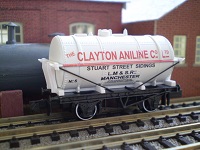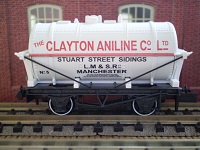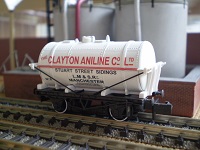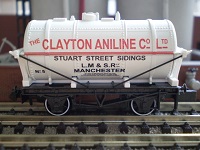The township of Manchester, built on the site of the Roman settlement of Mancunium, was a place of no great size or consequence in medieval England. But the industrial revolution of the nineteenth century swept the past away, and turned this small-town backwater into the first industrialised city in the world. Manchester was transformed by the mass-production of textiles, earning itself the nickname of Cottonopolis, and at its peak two-thirds of the world's cotton was processed in the city and its surrounding area. All these textiles needed dyeing before they were made into clothes and furnishings and whatever, of course, and so chemical works and dyers sprang up alongside the cotton mills.
One of these was the Clayton Aniline Company, founded in 1876 by French chemist and businessman Charles Dreyfus. He set up shop in the Clayton district of east Manchester and began production of aniline, an organic compound used in the manufacture of indigo dye. The business went from strength to strength, and their range of dyes expanded hugely under the guidance of brilliant chemist Arthur George Green. During the Great War the company was involved in the very lucrative manufacture of TNT for munitions, and in 1916 a rail link was built to connect the factory with a nearby branch line. When peace came the company thrived, aided by legislation protecting the British dyestuffs industry against competition from cheap imports, and the Clayton works expanded considerably. The thriving company had its own fleet of tanker wagons, painted in a distinctive white livery with red & black lettering, to bring the raw materials into the factory and take the finished products out.
The second world war also brought lucrative government contracts for the company, and in the post-war era it continued to thrive. Although aniline production ended at the Clayton site in 1964, business still boomed, and at its peak in the 1970s the plant employed over 2000 people. But the British textile industry went into a decline, and Clayton Aniline's fortunes declined with it. Production at Clayton dwindled away, until the site finally closed in 2007. The buildings were demolished, and today no trace remains. But you can bring back this historic company's heyday on your layout with our Clayton Aniline tanker.
To buy this wagon along with our Falk Salt wagon, please go to our 'N' Sets page.
|









